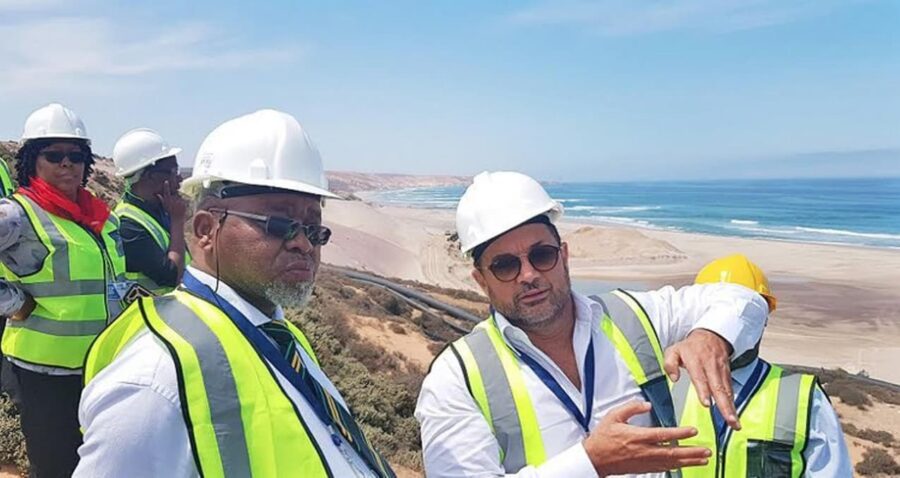
Aussie mining company “SLAPP suit” partly settled out of court
Six South African defendants have reached an agreement with Mineral Commodities Ltd

Just over half of the claims in a long-running R14.25-million “SLAPP” defamation action brought by Australian mining interests against six South African environmentalists and social activists have been settled out of court.
- Six South African defendants have reached an out-of-court agreement in a defamation case brought by Australian mining company MRC.
- The terms of the settlement have been kept confidential.
- But the former head of the company is continuing his personal R7-million damages claim against three of the defendants.
Just over half of the claims in a long-running R14.25-million “SLAPP” defamation action brought by Australian mining interests against six South African environmentalists and social activists have been settled out of court.
The terms of the settlement agreement are confidential.
SLAPP is an acronym for Strategic Litigation Against Public Participation and describes a legal strategy typically employed by wealthy individuals or large corporations to sue critics for huge defamation damages in order to discourage, censor, intimidate and silence them or to tie them up in lengthy and very expensive court action.
This particular action, involving a number of defamation claims in three cases, was brought by Australian mining company Mineral Commodities Ltd (known as MRC), its South African subsidiary, Mineral Sands Resources (MSR), then MRC executive chairman Mark Caruso, and MRC black empowerment partner Zamile Qunya.
The six respondents were environmental lawyers Christine Reddell, Tracey Davies and Cormac Cullinan, social worker John GI Clarke, and community activists Mzamo Dlamini from the Wild Coast and Davine Cloete from Lutzville on the West Coast.
They are alleged to have defamed the mining interests in books, interviews and presentations relating to the miners’ controversial activities on the Pondoland coast at Xolobeni and at the Tormin mineral sands mine on the West Coast.
Summonses in the action were served more than seven years ago, in August 2016.
The case made local legal history earlier this year by being the first SLAPP suit to reach the Constitutional Court. The court made several rulings relating to legal principles involved in instituting and defending SLAPP and other defamation suits, but it did not consider the merits of the alleged defamations in this particular action.
This week, MRC settled its claim of R1-million against Dlamini and R500,000 from Cullinan in the first case. In the second case, MSR settled claims of R250,000 each against Reddell, Davies and Cloete, while Qunya settled his R500,000 claim against Cloete. All these settlements were by agreement.
In the third case, MRC settled 13 claims against Clarke totalling R4.5-million.
However, MRC’s controversial executive chairperson at the time of the alleged defamations, Mark Caruso, has not settled his linked cases.
Caruso is no longer associated with the mining company. He resigned from the MRC board in 2020 and was fired from his chief executive position in March 2021. He is still seeking damages of R1-million from Dlamini and R500,000 from Cullinan, as well as R5.5-million in 16 claims against Clarke.
Cullinan said in reaction that the partial settlement was “not exactly what I wanted, but nevertheless I’m happy”.
He described the Constitutional Court judgment that confirmed SLAPP suits are an abuse of legal process as “very significant”.
“In my opinion, this helped to facilitate the settlement,” he said. “And I hope that the fact that the MRC companies have now settled this litigation in the wake of the Constitutional Court judgments will make other companies and wealthy individuals think twice about launching SLAPP suits against people who speak up in the public interest by criticising corporate actions that they believe are socially or environmentally harmful.
“I accept that sometimes companies and their executives may believe that they are being unfairly criticised and that sometimes the critics may not have all the correct facts. However, our society is strengthened by robust public debates on issues of public interest and not by allowing wealthy corporations and individuals to bully critics into silence by abusing legal processes.”
ALSO READ: Durban: Another China Mall on fire
In his response, Clarke said, “Having engaged with Mr Caruso from the very start of my involvement 16 years ago, it’s a pity that he has opted to continue his dispute through the courts. There are alternative ways of coming to an understanding and reconciliation of interests.
“Nevertheless, I respect his right to seek access to the courts for resolution. I just hope for his own sake that he doesn’t procrastinate, and has the courage of his convictions to take the stand and be cross-examined when that day arrives.”
MRC and Caruso were invited to comment but have not done so.
